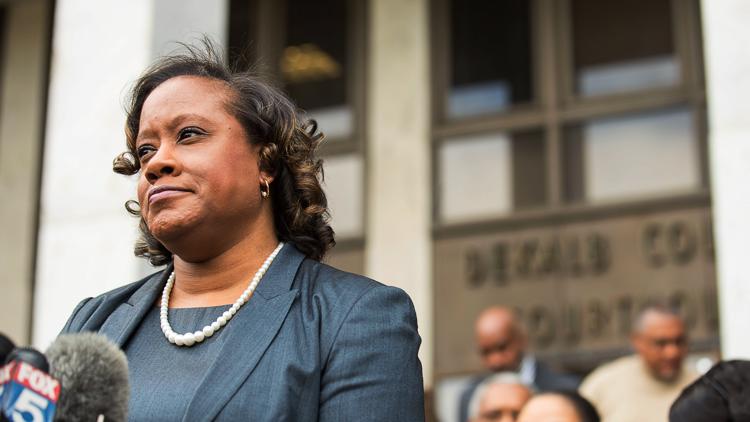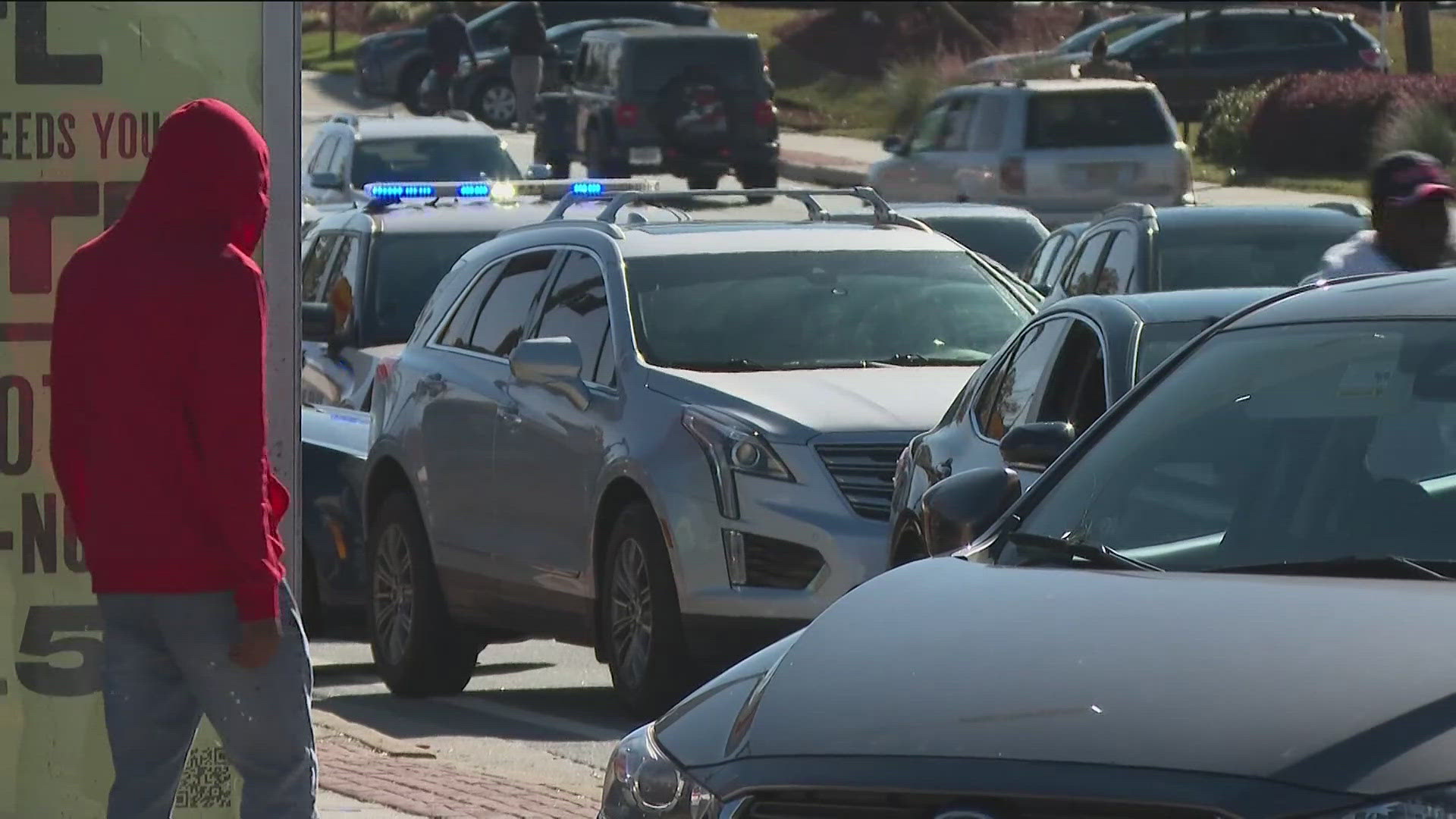ATLANTA — A Georgia judge has denied a preliminary challenge to block a commission created to discipline and remove state prosecutors, finding that it doesn't violate the U.S. or state constitution.
Fulton County Superior Court Judge Paige Reese Whitaker on Tuesday rejected the request for an injunction against Georgia’s Prosecuting Attorneys Qualifications Commission, which Republican lawmakers revived this year after creating it in 2023.
Democrats fear the commission has one primary goal: derailing Fulton County District Attorney Fani Willis ' prosecution of former President Donald Trump. Republicans, though, say it is needed to discipline so-called rogue prosecutors who are refusing to enforce laws.
Republican Gov. Brian Kemp signed legislation last year creating the commission, but it couldn't begin operating because the state Supreme Court refused to approve rules governing its conduct. The justices said they had “grave doubts” about the high court's ability to regulate the decisions made by district attorneys.
Lawmakers then removed the requirement for court approval, a change Kemp signed into law. The commission began operating April 1.
Republicans in Tennessee, Missouri, Indiana, Pennsylvania and Florida have pushed back on prosecutors who announced they would pursue fewer drug possession cases and shorter prison sentences as a matter of criminal justice reform.
The Georgia challenge was filed by Sherry Boston, the district attorney in the Atlanta suburb of DeKalb County; Jared Williams of Augusta and neighboring Burke County; and Jonathan Adams of Butts, Lamar and Monroe counties south of Atlanta. Adams is a Republican, the others are Democrats.
Although the underlying lawsuit is still pending before Whitaker, she expressed grave doubts about its arguments that the law violates prosecutorial discretion, a fundamental of the American judicial system through which prosecutors decide what charges to bring and how severe of a sentence to seek.
The prosecutors say the law violates Georgia’s constitutional separation of powers by requiring district attorneys to review every single case on its individual merits. District attorneys argue that they should be able to reject prosecution of whole categories of crimes as a matter of policy. But Whitaker found that the requirement that every case be reviewed “does not meaningfully impair prosecutorial discretion.”
She was also skeptical of the claim that state lawmakers are improperly intruding on the judicial branch by regulating prosecutors.
“Because the Georgia Constitution expressly authorizes the General Assembly to impose statutory duties on district attorneys and to create the grounds and process to discipline or remove district attorneys, there is no violation of the state Constitution’s separation of powers clause," Whitaker wrote.
Whitaker also rejected the district attorneys' claim that the law violates federal and state constitutional guarantees of freedom of speech by restricting what matters of public concern district attorneys can talk about when running for office. She said the law doesn't cover such political speech. She also said there's no proof that the commission is to blame for already chilling prosecutors' speech, as the district attorneys have claimed. The judge said there was no evidence the commission has started investigating any prosecutor, much less started disciplinary proceedings against any.
Whitaker also said she was likely to reject a claim that the commission had improperly adopted its rules.
State Senate President Pro Tem John Kennedy, a Macon Republican who has supported the law, called on the district attorneys to drop the case after their preliminary loss.
“To continue this challenge is an injustice to crime victims in our communities as well as to Georgia taxpayers having to shoulder the expense of this frivolous case,” Kennedy said in a statement. “This is the second time these plaintiff-prosecutors have failed in court to block the law. Maybe it’s time to realize that they have a losing argument.”
State Sen. Randy Robertson, a Cataula Republican who sponsored the law, rejected claims that the law improperly curbs prosecutorial discretion.
“I understand how important it is for officials to exercise discretion but that does not mean they can simply ignore the law and allow crime to run rampant," Robertson said in a statement.
Boston said that despite the setback, she and the other plaintiffs aren’t giving up and are committed to carrying the fight to the Georgia Supreme Court.
“We are committed to continuing our fight against this unconstitutional overreach by the state as our challenge makes its way through the courts,” Boston said in a statement.



